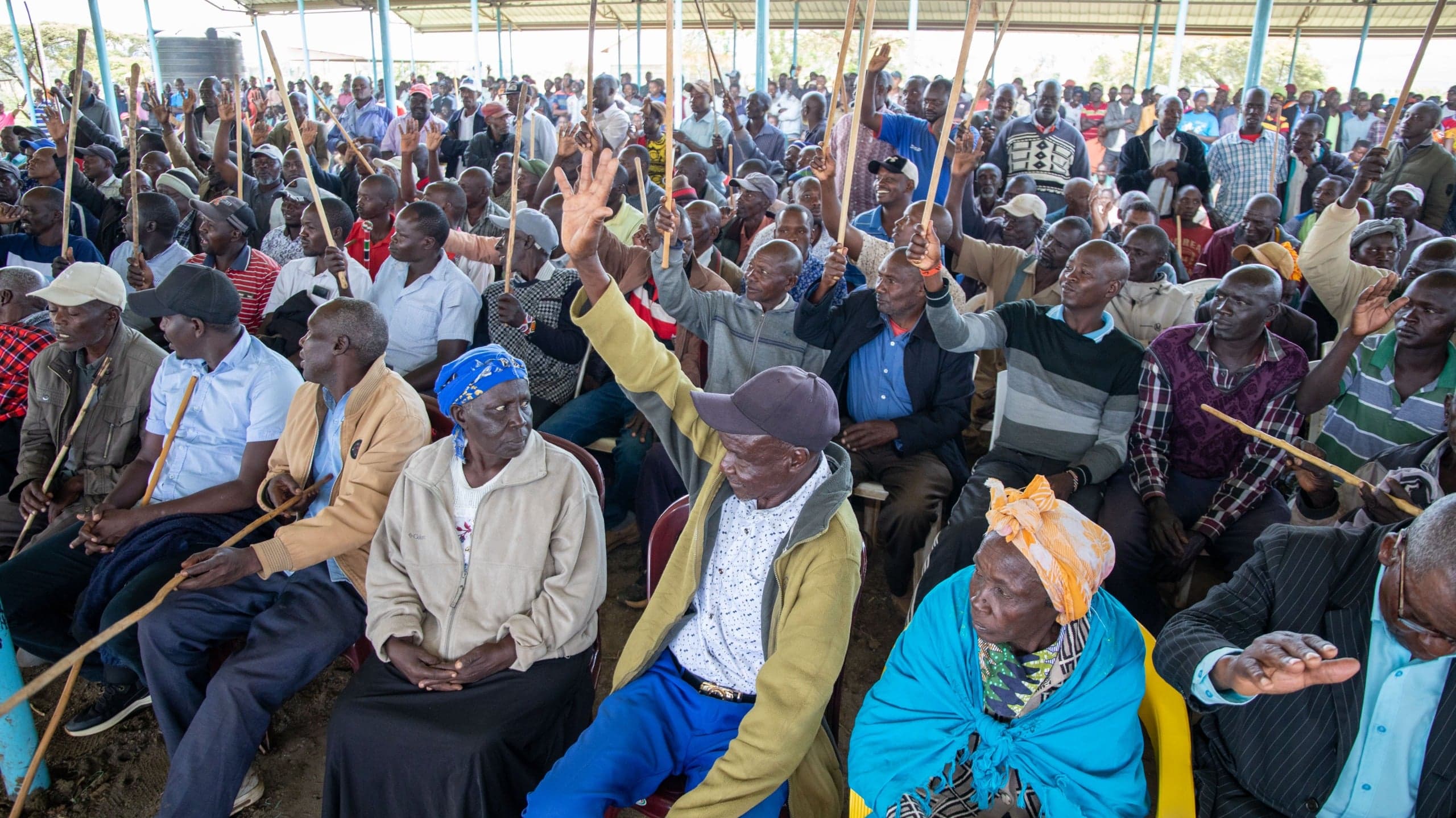We're loading the full news article for you. This includes the article content, images, author information, and related articles.
Principal Secretary Nixon Korir has been summoned to provide a crucial report on the Banita Settlement Scheme, a 14,000-acre land case in Nakuru's Rongai area, aiming to resolve a dispute that has left thousands of families in limbo for over two decades.

Principal Secretary for Lands and Physical Planning, Nixon Korir, is set to appear before the Nakuru Environment and Land Court on Wednesday, October 30, 2025, to present a comprehensive report on the Banita Settlement Scheme. This development marks a critical step in resolving a protracted land dispute over a 14,000-acre parcel in Rongai, Nakuru County, which has been a source of contention for more than two decades.
The case revolves around land acquired by the former President Daniel arap Moi's administration between 2001 and 2002, intended to resettle thousands of landless families. The expansive land, purchased through the Settlement Fund Trustees from the Majani Mingi Group, was earmarked for landless residents in Banita, Rongai Constituency, and former employees of the sisal estate that previously occupied the area.
Land disputes in Kenya often have deep historical roots, tracing back to colonial-era policies that led to significant land alienation and skewed ownership patterns. Post-independence governments have also faced challenges in addressing these injustices, with issues such as corruption in resettlement programmes and politically instigated violence contributing to ongoing conflicts.
The Banita Settlement Scheme, initiated during the final years of the KANU administration, aimed to address landlessness. However, the distribution process has been plagued by allegations of beneficiaries being removed from lists in favour of individuals with connections to prominent figures. This mirrors broader concerns about land allocation transparency and fairness that have historically affected various communities across Kenya.
Kenya's land sector is governed by a framework of laws, including the Constitution of Kenya 2010, the Land Act 2012, the Land Registration Act 2012, and the National Land Commission Act 2012. These laws aim to promote sustainable land use, reduce conflicts, and protect landowners' rights.
The National Land Commission (NLC) plays a crucial role in managing public land, investigating historical land injustices, and recommending redress. Recent amendments, such as the National Land Commission (Amendment) Bill, 2023, have sought to revive the NLC's mandate to review land allocations made before August 27, 2010, with a five-year sunset clause.
President William Ruto has directed the Ministry of Lands to ensure the Banita dispute is resolved and title deeds are issued to beneficiaries. In November 2024, PS Korir announced that all groups and stakeholders in the scheme had resolved their differences, and the ministry was working to complete the process. However, recent reports indicate ongoing tensions and protests from residents over the land dispute.
The Nakuru Environment and Land Court Judge Anthony Ombwayo issued the summons to PS Korir, emphasising the importance of the report in detailing the list of beneficiaries. Failure to appear without lawful excuse could lead to consequences for non-attendance.
The prolonged dispute over the Banita Settlement Scheme highlights the complexities and potential for conflict in land allocation processes. Delays in issuing title deeds can hinder economic growth and perpetuate cycles of poverty for landless families. Unresolved land issues also pose risks to social cohesion and can lead to heightened tensions within communities. The Ministry of Lands has previously faced allegations of impropriety in other land disputes, which PS Korir has defended as lawful and guided by court orders.
Despite PS Korir's earlier assurances of resolved differences among stakeholders in the Banita scheme, recent protests from residents suggest that underlying issues remain. The exact nature of the disagreements and the specific concerns of the omitted beneficiaries are not fully clear. The court's intervention seeks to bring clarity and a definitive resolution to these lingering uncertainties.
The upcoming court appearance of PS Korir will be critical in determining the future of the Banita Settlement Scheme. Stakeholders will be closely watching the contents of the report and the court's subsequent directives, which could pave the way for the long-awaited issuance of title deeds. The resolution of this case could also set a precedent for addressing other historical land injustices across the country.
Keep the conversation in one place—threads here stay linked to the story and in the forums.
Sign in to start a discussion
Start a conversation about this story and keep it linked here.
Other hot threads
E-sports and Gaming Community in Kenya
Active 9 months ago
The Role of Technology in Modern Agriculture (AgriTech)
Active 9 months ago
Popular Recreational Activities Across Counties
Active 9 months ago
Investing in Youth Sports Development Programs
Active 9 months ago